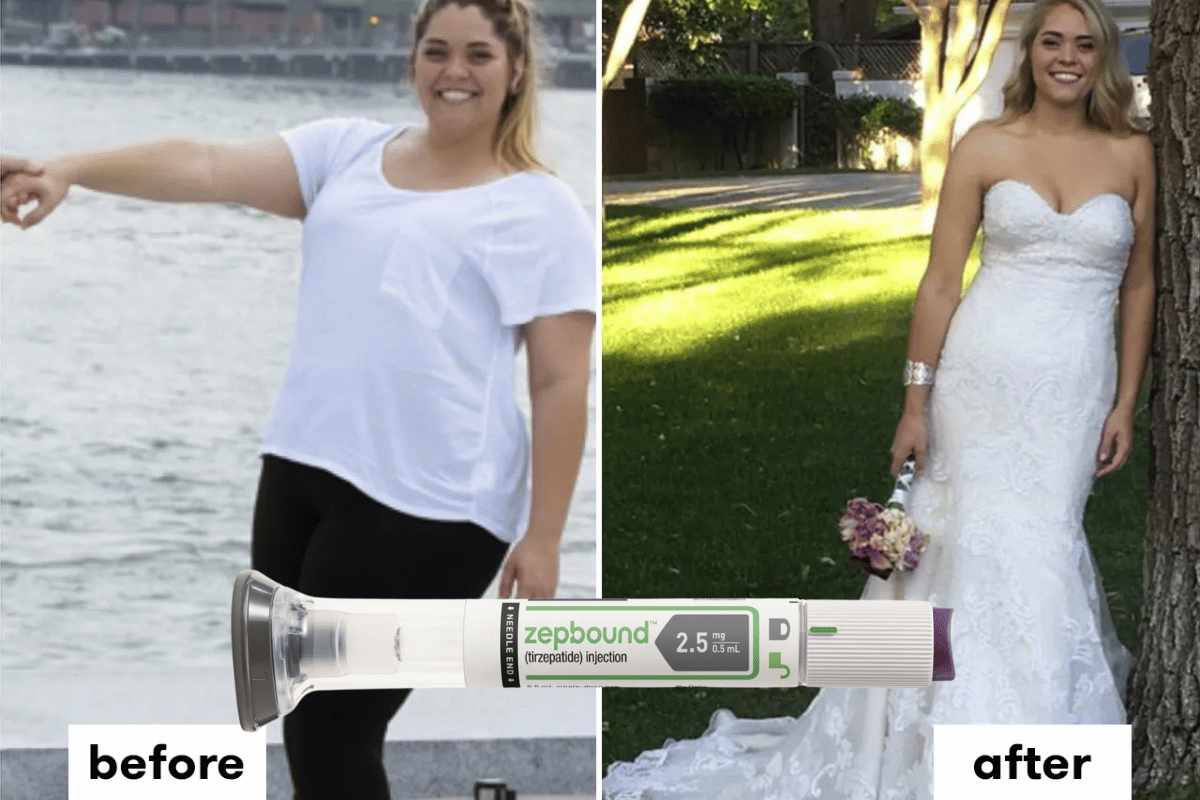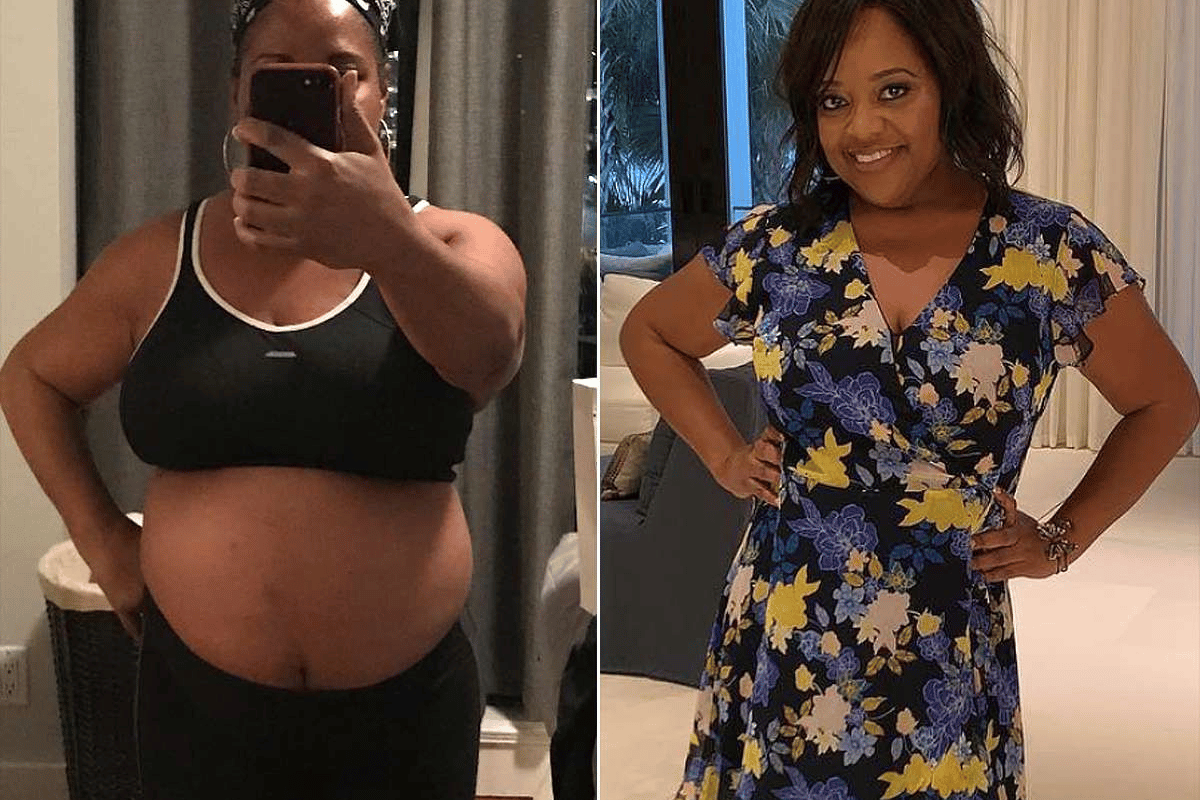Yes, it’s possible to shed unwanted pounds without formal exercise. While physical activity plays a vital role in overall health, what can I do to lose weight fast without exercising becomes essential for those with busy schedules, physical limitations, or other constraints. The key to effective weight loss lies in making targeted lifestyle changes that focus on nutrition, daily habits, and overall well-being.
Weight loss is a holistic process. By prioritizing nutrient-dense foods, staying hydrated, managing stress, and improving sleep quality, you can create a calorie deficit and support fat loss without needing to hit the gym. Small but consistent lifestyle adjustments can deliver impressive results, making this approach sustainable and achievable for everyone.
what can i do to lose weight fast without exercising
Tip #1: Focus on Eating More Whole, Nutrient-Dense Foods
Why Whole Foods Are Essential for Weight Loss
Eating whole, unprocessed foods is one of the most effective ways to lose weight, especially if exercise isn’t part of your routine. Whole foods naturally help regulate your metabolism and reduce calorie intake by providing essential nutrients that support your body’s functions. Unlike processed foods, often high in sugar and unhealthy fats, whole foods are nutrient-dense and low in empty calories, making them a powerful ally in your weight-loss journey.
Additionally, whole foods can reduce cravings and keep you fuller for longer, thanks to their higher fiber and protein content. These properties make it easier to maintain a calorie deficit without feeling deprived, promoting sustainable and healthy weight loss.
Best Whole Foods to Include in Your Diet
To boost fat burning and improve overall health, focus on incorporating the following nutrient-dense foods into your meals:
- Vegetables: Leafy greens, broccoli, bell peppers, zucchini, and carrots are rich in vitamins and low in calories.
- Fruits: Berries, apples, oranges, and pears provide natural sweetness and antioxidants.
- Lean Proteins: Chicken, turkey, fish, tofu, eggs, and legumes are essential for muscle repair and satiety.
- Healthy Fats: Avocados, nuts, seeds, and olive oil offer heart-healthy fats that keep you satisfied.
These foods enhance fat-burning processes and improve overall energy levels and digestion.
How to Start Incorporating Whole Foods
Here are some practical tips to add more whole foods to your diet:
- Meal prepping: Plan and prepare meals in advance using fresh, whole ingredients to avoid reaching for processed options during busy days.
- Balanced meals: Combine lean proteins, healthy fats, and fiber-rich vegetables at every meal to maintain steady energy levels and control hunger.
- Smart swaps: Replace processed snacks with whole foods like nuts, fruit, or yogurt.
- Cooking at home: Prepare meals from scratch whenever possible to control ingredients and portion sizes.
Focusing on whole, nutrient-dense foods is a sustainable strategy to manage weight without exercise. These foods provide essential nutrients while helping you feel full and satisfied, making it easier to stay consistent with your weight-loss goals.

Tip #2: Drink More Water Throughout the Day
How Hydration Affects Weight Loss
Staying hydrated is a simple yet effective way to lose weight without exercising. Water plays a crucial role in appetite regulation and fat metabolism, helping to control calorie intake naturally. Drinking water before meals can be a natural appetite suppressant, reducing the likelihood of overeating. Additionally, proper hydration supports your body’s ability to metabolize stored fat into energy, accelerating weight loss.
Hydration also aids digestion, reduces bloating, and supports healthy kidney function, ensuring your body efficiently processes nutrients and eliminates waste. These benefits contribute to a leaner appearance and improved overall well-being.
How to Increase Water Intake
Here are some practical strategies to stay hydrated throughout the day:
- Carry a water bottle: Keep a reusable bottle with you as a reminder to drink water regularly.
- Drink before meals: Consuming a glass of water before eating can help control portion sizes and reduce calorie intake.
- Choose water-rich foods: Incorporate hydrating fruits and vegetables, such as cucumbers, watermelon, oranges, and lettuce, into your meals.
Other Hydration Tips
- Herbal teas: Enjoy calorie-free herbal teas like chamomile, green tea, or peppermint to increase fluid intake while reaping additional health benefits.
- Infused water: To make your water more appealing, add a splash of flavor with fresh lemon, mint, cucumber, or berries.
- Drink strategically: Start your day with a glass of water and evenly space your intake to ensure consistent hydration.
Drinking more water throughout the day is a simple and sustainable way to boost weight loss without exercise. Keeping your body hydrated’ll improve digestion, reduce cravings, and support natural fat-burning processes.
Tip #3: Get Enough Sleep to Support Weight Loss
The Importance of Sleep for Fat Loss
Getting enough quality sleep is critical to achieving weight loss, especially if exercise isn’t part of your routine. Lack of sleep disrupts the balance of hunger-regulating hormones such as ghrelin and leptin. Ghrelin, the hormone that signals hunger, increases when you’re sleep-deprived, while leptin, which signals fullness, decreases. This hormonal imbalance increases appetite and cravings, making it harder to maintain a calorie deficit.
In addition, sleep plays a vital role in metabolic function. During deep sleep, your body repairs, regulates blood sugar levels, and burns fat. Sleep also reduces stress, lowering cortisol levels that can contribute to fat storage, particularly around the belly. Prioritizing sleep not only aids weight loss but also improves overall health and energy levels.
Tips for Better Sleep Quality
- Establish a bedtime routine: Go to bed and wake up simultaneously every day, even on weekends, to regulate your body’s internal clock.
- Limit screen time: Avoid screens at least an hour before bed to reduce exposure to blue light, which can interfere with melatonin production.
- Optimize your sleep environment: Keep your bedroom cool, dark, and quiet to create an ideal atmosphere for restful sleep. If needed, use blackout curtains and a white noise machine.
- Relax before bed: Practice calming activities such as reading, meditation, or a warm bath to unwind.
How Sleep Supports Better Food Choices and Fat-Burning
When well-rested, your body is better equipped to make healthier food choices, resist cravings, and regulate appetite. Quality sleep enhances nighttime fat burning as your body enters a repair mode, promoting better metabolic efficiency.
By prioritizing 7-9 hours of sleep each night, you can create a strong foundation for effective weight management and improve your ability to lose weight without exercising.

Tip #4: Manage Stress Levels
How Stress Contributes to Weight Gain
Stress is a significant factor in weight gain, particularly in storing belly fat. When you’re stressed, your body produces higher cortisol levels, a hormone that can increase appetite and encourage fat storage in the abdominal area. This hormonal response can make it harder to maintain a calorie deficit, even if your diet remains consistent.
Additionally, stress often triggers emotional eating, where high-calorie comfort foods are used as a coping mechanism. These eating habits can lead to overconsumption and derail your weight-loss efforts. Addressing stress is crucial for managing your appetite and reducing the likelihood of storing excess fat.
Stress-Reduction Techniques for Weight Loss
Here are some practical ways to reduce stress and support your weight-loss goals:
- Mindfulness practices: Spend a few minutes each day practicing mindfulness, which helps you stay present and manage stress levels.
- Meditation: Guided meditation can help calm your mind and reduce the production of stress hormones.
- Deep breathing exercises: Simple breathing techniques, such as inhaling deeply for four counts and exhaling for six, can help lower cortisol levels.
- Yoga: Practicing yoga reduces stress, improves flexibility, and strengthens the core, aiding overall well-being.
Self-Care and Relaxation
Taking time for self-care is essential in managing stress and preventing stress-induced weight gain. Activities like reading, journaling, or relaxing can help lower stress levels and promote a healthier mindset. Scheduling regular breaks and prioritizing relaxation ensures that your weight-loss journey remains sustainable.
By managing stress effectively, you can prevent the hormonal imbalances and emotional eating patterns that hinder weight loss. This approach supports fat loss and enhances your overall quality of life.
Tip #5: Practice Mindful Eating
What is Mindful Eating, and How Does It Help with Weight Loss?
Mindful eating is a practice that involves eating slowly, savoring your food, and paying attention to your body’s hunger and fullness cues. This approach not only enhances your enjoyment of meals but also helps you recognize when you’re starving versus eating out of boredom or stress. Focusing on your meal without distractions, such as TV or scrolling on your phone, can help you better control portion sizes and avoid overeating.
Practicing mindful eating is especially effective for weight loss. It encourages healthier food choices and prevents mindless snacking. When you are more aware of what and how much you’re eating, it becomes easier to maintain a calorie deficit and support long-term weight management.
How to Practice Mindful Eating
Here are some practical tips to help you eat mindfully:
- Be present during meals: Sit at a table, eliminate distractions, and focus solely on your food.
- Chew thoroughly: Take small bites and chew each bite slowly. This aids digestion and allows your brain enough time to register fullness.
- Savor each bite: Notice your food’s flavors, textures, and aromas. Enjoying these sensory experiences can make meals more satisfying.
- Pause between bites: After each bite, put your utensils down and take a moment before picking them up again.
How to Tune Into Your Body’s Signals
- Recognize hunger: Before eating, ask yourself if you’re starving or simply eating out of habit, boredom, or stress.
- Stop when full: Pay attention to feelings of fullness and stop eating before you feel overly stuffed.
- Reflect on meals: After eating, take a moment to notice how your body feels. This helps you identify foods that satisfy you and keep you energized.
Mindful eating helps control calorie intake and transforms your relationship with food, making it easier to stick to healthier habits. By slowing down and being more intentional with meals, you can support your weight-loss goals while enjoying the process.

Tip #6: Reduce Your Intake of Sugar and Refined Carbs
The Role of Sugar and Refined Carbs in Weight Gain
Excess sugar and refined carbohydrates significantly contribute to weight gain and difficulty losing fat. These foods cause rapid spikes in blood sugar levels, prompting insulin release. This hormone helps regulate blood sugar and signals the body to store fat, particularly around the belly. Over time, consuming sugary drinks, desserts, and refined grains like white bread and pasta can disrupt your metabolism, making it harder to burn fat effectively.
In addition to promoting fat storage, sugar, and refined carbs provide little nutritional value and often leave you feeling hungry shortly after eating. This can lead to overeating and make it challenging to maintain a calorie deficit.
Healthier Alternatives to Sugar and Refined Carbs
Making smarter choices can help you reduce sugar and carb intake while still enjoying satisfying meals:
- Natural sweeteners: Replace refined sugar with alternatives like stevia, monk fruit, or small amounts of raw honey.
- Whole grains: Opt for complex carbs such as quinoa, brown rice, oats, and whole-grain bread, which release energy slowly and keep you fuller for longer.
- Fiber-rich foods: Replace sugary snacks with fruits, vegetables, nuts, or seeds to satisfy cravings while boosting digestion and reducing hunger.
How to Cut Back on Sugary Foods
- Read labels: Look for hidden sugars in packaged foods, often labeled as high fructose corn syrup, dextrose, or maltose.
- Plan your snacks: Prepare healthy snacks in advance to avoid reaching for high-sugar options when hunger strikes.
- Gradual reduction: To ease the transition, start by cutting back on sugary drinks and desserts, then gradually reduce your intake of processed carbohydrates.
Reducing your intake of sugar and refined carbs is a decisive step toward achieving sustainable weight loss. By choosing healthier alternatives and focusing on nutrient-dense foods, you’ll support fat-burning, maintain stable energy levels, and take a significant step toward your weight-loss goals.
Tip #7: Increase Daily Non-Exercise Physical Activity (NEAT)
What is NEAT, and How Does It Contribute to Weight Loss?
Non-exercise activity thermogenesis (NEAT) refers to the calories burned through daily activities that aren’t formal exercise, such as walking, standing, fidgeting, or doing household chores. Increasing NEAT is a highly effective way to burn more calories and lose weight without structured workouts. These small lifestyle changes can significantly boost your daily calorie expenditure and contribute to fat loss over time.
Even simple actions like standing more often or taking frequent breaks to move around can prevent long periods of sedentary behavior, which is linked to weight gain. Integrating more movement into your routine can enhance fat burning and support a leaner body without a gym session.
Ways to Increase NEAT
Here are practical strategies to boost your NEAT levels:
- Take the stairs: Skip the elevator and climb stairs whenever possible to burn extra calories.
- Walk or bike for errands: Choose active transportation for short trips instead of driving.
- Use a standing desk: Alternate between sitting and standing during work to stay active throughout the day.
- Track your steps: Use a pedometer or fitness tracker to monitor your daily activity and set goals to stay motivated.
- Move during idle moments: Walk while talking on the phone, do light stretching while watching TV, or tidy up your home regularly to add more movement.
How Moving More Helps Burn Fat Without Exercise
Incorporating more movement into your day can create a calorie deficit without traditional workouts. NEAT activities are easy to sustain, making them a practical and low-pressure way to lose weight while improving overall health and energy levels.
Boosting your NEAT is a simple, sustainable strategy for fat loss that fits seamlessly into your daily life. These small changes can lead to big results, helping you achieve your weight-loss goals effortlessly.

Conclusion
Losing weight without exercising is entirely achievable by focusing on sustainable lifestyle changes. From prioritizing whole, nutrient-dense foods and staying hydrated to improving sleep quality, managing stress, and practicing mindful eating, these habits form the foundation for effortless fat loss. Reducing sugar and refined carbs and increasing daily non-exercise physical activity (NEAT) further enhance your ability to create a calorie deficit and achieve weight-loss goals.
Remember, weight loss doesn’t require drastic measures. Minor, consistent adjustments to your daily routine can lead to significant results over time. By adopting these seven strategies, you can effectively manage your weight while promoting long-term health and well-being. Start small, stay consistent, and embrace a holistic approach to achieve sustainable fat loss.
FAQ: What Can I Do to Lose Weight Fast Without Exercising?
1. Is it possible to lose weight without exercising?
You can lose weight without exercising by focusing on lifestyle changes such as improving your diet, managing stress, staying hydrated, getting quality sleep, and increasing daily non-exercise activity.
2. What are some practical ways to lose weight without exercise?
The most effective strategies include:
- Eating whole, nutrient-dense foods like vegetables, fruits, and lean proteins.
- I am staying hydrated by drinking more water and herbal teas.
- We are reducing stress through mindfulness, meditation, or yoga.
- I am practicing mindful eating to avoid overeating and make healthier food choices.
- I am cutting back on sugar and refined carbs to reduce fat storage.
- We are increasing daily movement through non-exercise activities like walking and household chores.
3. How does drinking more water help with weight loss?
Drinking water suppresses appetite, boosts metabolism, and improves digestion. Staying hydrated can also reduce bloating and help you avoid consuming unnecessary calories from sugary drinks.
4. Why is sleep important for weight loss?
Quality sleep regulates hunger hormones like ghrelin and leptin, which control appetite. Poor sleep can increase cravings and overeating, while good sleep supports fat-burning and better food choices.
5. What is NEAT, and how does it help with weight loss?
NEAT stands for non-exercise activity thermogenesis, which includes daily movements like walking, standing, and fidgeting. Increasing NEAT can significantly boost calorie burn without requiring structured workouts.
6. How can I reduce sugar and refined carbs in my diet?
Replace sugary snacks with fruits, nuts, or yogurt, and opt for whole grains like quinoa or oats instead of refined grains. To make the transition easier, gradually reduce the consumption of sugary drinks and desserts.
7. What are some tips for mindful eating?
Eat slowly, chew thoroughly, and avoid distractions like TV or phones during meals. Pay attention to hunger and fullness cues to prevent overeating.
8. Can I lose belly fat specifically without exercising?
While spot reduction isn’t possible, reducing overall body fat through a healthy diet, stress management, hydration, and daily activity will help decrease belly fat over time.
9. How long does it take to see results with these strategies?
Results depend on your starting point, consistency, and individual metabolism. Most people notice changes within a few weeks of implementing these healthy habits.













